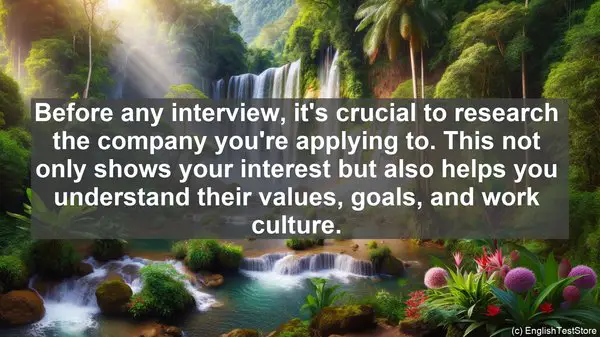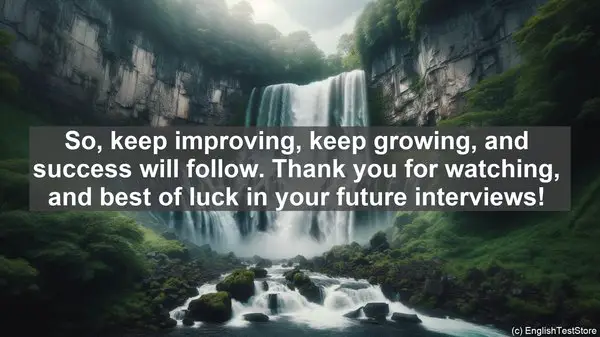Introduction: The Importance of Job Interview Preparation
Today, we’re going to discuss a topic that’s crucial for your future career success: job interviews. Whether you’re a recent graduate or looking for a career change, mastering the art of job interviews is essential. And when it comes to interviews conducted in English, it can be even more challenging. But don’t worry! With the right preparation and practice, you can ace any job interview. In this video, we’ll be focusing on tips specifically tailored for students at the B1 level. So, let’s dive in!
1. Research the Company
Before any interview, it’s crucial to research the company you’re applying to. This not only shows your interest but also helps you understand their values, goals, and work culture. Explore their website, social media profiles, and recent news articles. This knowledge will come in handy when answering questions like ‘Why do you want to work here?’ or ‘What do you know about our company?’

2. Understand the Job Description
Thoroughly read and analyze the job description. Highlight the key skills and qualifications they’re looking for. This will give you a clear idea of what the interviewer is seeking. During the interview, you can then highlight your relevant experiences and skills, aligning them with the job requirements.
3. Practice Common Interview Questions
While you can’t predict every question, there are certain common ones that often come up. Practice answering questions like ‘Tell me about yourself,’ ‘What are your strengths and weaknesses?’ or ‘Where do you see yourself in five years?’ Prepare concise, well-structured answers that showcase your abilities and aspirations.
4. Improve Your English Language Skills
At the B1 level, your English skills are already quite good. However, it’s always beneficial to enhance them further. Work on expanding your vocabulary, improving your grammar, and practicing your pronunciation. This will not only help you during the interview but also in your future professional interactions.

5. Familiarize Yourself with Industry Jargon
Every field has its own set of technical terms and jargon. Make sure you’re familiar with the ones relevant to the job you’re applying for. This not only demonstrates your knowledge but also helps you understand the interviewer’s questions better, allowing you to provide more accurate and relevant responses.
6. Dress Professionally
Your appearance plays a significant role in creating a positive first impression. Dress professionally, even if the company has a casual dress code. It shows that you take the interview seriously and are committed to presenting yourself in the best possible way.
7. Prepare Questions to Ask the Interviewer
Towards the end of the interview, the interviewer will usually ask if you have any questions. Always have a few prepared. It could be about the company’s future plans, team dynamics, or any recent projects they’ve undertaken. This not only shows your interest but also helps you gather more information to make an informed decision if you receive an offer.
8. Practice Non-Verbal Communication
Remember, it’s not just about what you say, but also how you say it. Practice maintaining good eye contact, using appropriate hand gestures, and having a confident posture. These non-verbal cues can convey your confidence, enthusiasm, and professionalism.
9. Be Punctual
Being late for an interview is a big no. Plan your journey in advance, considering any potential delays. It’s always better to arrive a few minutes early than to rush in at the last moment. This not only shows your punctuality but also gives you some time to calm your nerves before the interview.
10. Follow Up with a Thank-You Note
After the interview, it’s a good practice to send a thank-you note or email to the interviewer, expressing your gratitude for the opportunity and reiterating your interest in the position. It’s a small gesture that can leave a lasting impression.
